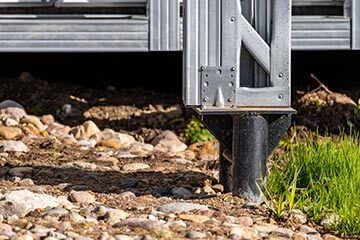Drones are becoming more popular across the UK, whether it's for fun flying or professional work. But along with the excitement comes responsibility, and that's where drone insurance comes in.
This guide will break down who needs insurance, what different policies cover and why it matters. We'll keep it simple so you'll know how to protect yourself, your drone and everyone around you - while also staying on the right side of the law.

Does home insurance cover my drone?
The short answer? Sometimes. But most of the time, it's not nearly enough.
Home insurance usually splits into buildings insurance and contents insurance. Drones usually count as contents, so your policy might cover theft if it's nicked from inside your home. Sounds good, right? But here's the snag - if it's lost or damaged while you're out flying, don't expect a payout.
Liability's another gap. Home insurance public liability is about accidents linked to your property - not a flying gadget. So if your drone smashes a window or dents someone's car, your home insurer probably won't step in.
That's why specialist drone insurance exists. It's built for the real risks of using drones - things like crashes mid-flight, accidental loss and liability if your drone goes rogue.
We don't compare drone insurance, but we do compare home insurance. And because we know good cover when we see it, we can still help you spot what a decent drone policy should include.
What is drone insurance and what does it cover?
Drone insurance is there to catch you if things go wrong mid-flight. Unlike home or gadget cover, it's made for the risks that come with flying a drone - whether that's accidents, theft or damage.
A policy can include:
-
Third party liability insurance - if your drone smashes a window or injures someone.
-
Theft or accidental damage - pays towards repair or replacement if your drone is lost, stolen or broken.
-
Public liability - essential if you're flying for work - it can cover the cost of claims if your drone causes an accident.
The level of cover you'll need depends on how you use your drone - we'll break it down in the next few sections.
Do you legally need drone insurance in the UK?
It depends on how you fly. If your drone's just for fun, you don't have to be insured by law. But if you crash and cause damage or hurt someone, the bill's on you. That's why insurance is still strongly recommended.
Flying for work? Whole different story. The Civil Aviation Authority (CAA) says commercial drone operators must have insurance that meets EC Regulation 785/2004. This covers public liability and is a legal must if you're being paid to fly.
Skip it and you risk losing your CAA permissions, facing fines or even ending up in court if something goes wrong.
Hobby vs commercial drone insurance: What’s the difference?
Flying for fun or flying for cash? The type of insurance you need depends on how you use your drone.
-
Hobby drone insurance - for recreational flying. It usually covers accidental damage, theft and sometimes public liability if your drone injures someone or damages property while you're out having fun.
-
Commercial drone insurance - a legal must if you're earning money from your flights. It includes public liability and professional indemnity, with extras for things like cameras and sensors.
In short: hobby cover is fine if you're just messing about. But if you're getting paid, commercial cover is a legal requirement.
What is drone public liability insurance?
Drone public liability insurance covers you if your drone causes injury to another person or damage to their property. It also helps with the legal costs if a claim is made against you.
For example, if your drone crashes into a car or injures someone while flying, public liability insurance can cover the costs. This type of cover is especially important for commercial pilots but can also give hobbyists added protection.
How much does drone insurance cost?
Hobby drone insurance can start from around £17-£30 a year for basic liability cover. Commercial drone insurance usually begins at about £130 a year, depending on how much flying you do, the drone value and your cover limits.
Do I need to register my drone?
Yes - most drone pilots in the UK need to register with the CAA.
There are 2 types of ID you may need:
-
Flyer ID - if you're the one actually flying the drone.
-
Operator ID - if you're responsible for the drone, even if someone else is flying it.
You'll need to register if your drone has a camera or weighs 250g or more. Registration is done online through the CAA website, and should only take a few minutes.
What is the CAA Drone Code?
The CAA Drone Code is a set of rules that every UK drone pilot must follow. It's there to keep you, other people and the skies safe.
The key rules are straightforward:
-
Stay below 120m (400ft) to avoid aircraft.
-
Keep your drone in sight at all times.
-
Stay clear of airports and airfields - check maps for no-fly zones.
-
Never fly over crowds or busy areas.
Following the Drone Code isn't just good practice, it's the law. As the pilot, you're legally responsible for flying safely and making sure your drone doesn't put people or property at risk.







